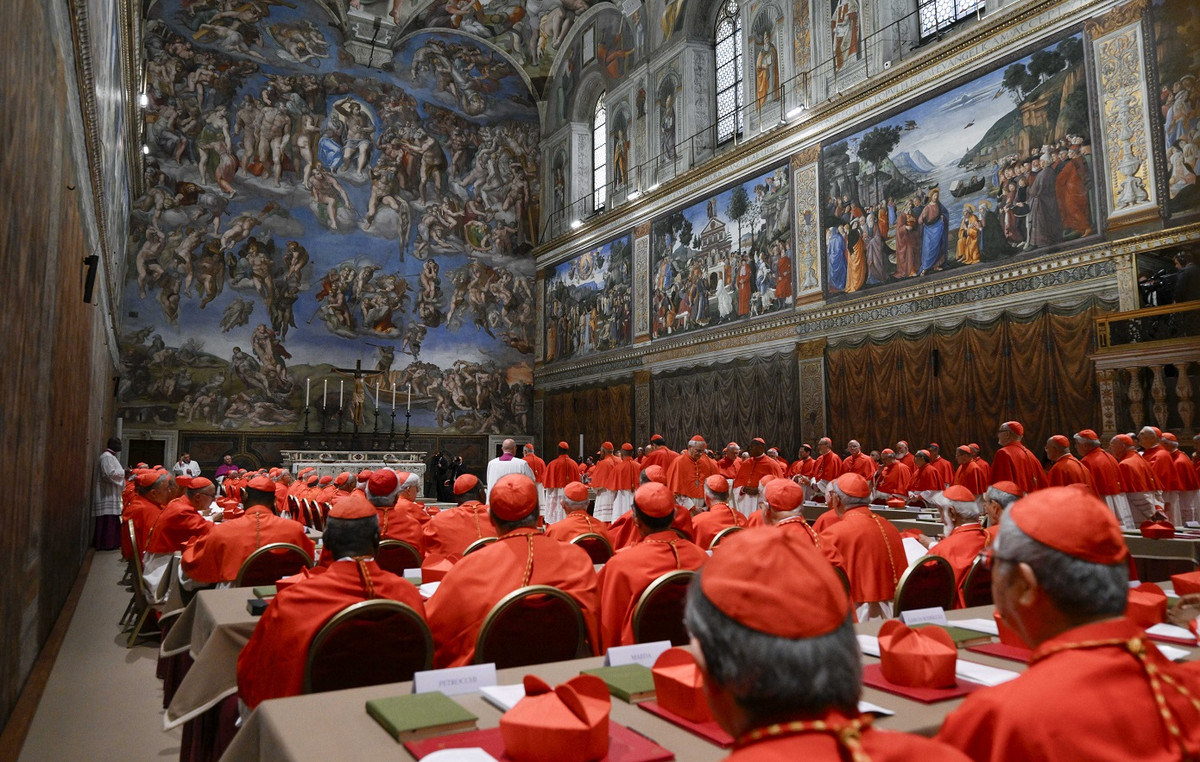saturday is Black conscience day and among the many events that will celebrate this date, there is one that enshrines one of the main names in Brazilian culture with an exhibition that reinforces its importance. the paulista magician Itamar Assumption (1949-2003) gained an occupation at the Centro Cultural da Penha, in São Paulo, which for the first time brought the collection of the Mu.Ita, the first virtual museum dedicated to a black Brazilian artist.
Released exactly a year ago by his daughter, the singer and songwriter Anelis Assumption, the setup takes its first step towards offline life. The exhibition opens this Saturday, with a show by Renato Gama, and runs until January 25th of next year.
“This is not the first exhibition held in honor of Itamar”, recalls Anelis, referring to the Itamar Assumpção Occupation, launched almost ten years ago at Itaú Cultural, which coincided with the launch of the documentary “Daquele Instante em Diante”, directed by Rogério Velloso , and the book “Cadernos Inéditos”, which brought together notes by the legendary musician who changed the face of São Paulo’s musical production, when it emerged amidst the scene that revolved around the Lira Paulistana theater, in the early 1980s.
“This exhibition that we are going to do at the Penha Cultural Center is a direct reflection of the virtual museum in relation to the visual identity, collection and all the learning that we have had so far. It’s a small sample of the long-term exhibition inside the museum, which is called Afrobrasileiro Puro”, continues the honoree’s daughter, listing some items that will be made public, such as personal documents, family photos, original LPs, clothes, videos , as well as an orchid house made by her mother, Elizena Brigo de Assumpção, widow of Itamar.
“The Ita orchid house is a small invitation to immerse yourself in the more personal side of Itamar”, continues Anelis. “It was an idea we had to create this ambience, this closer relationship with Ita and with the simplicity of his life. Anyone who knows him knows of his adoration for orchids, so much so that he named one of his bands Orchids of Brazil. He was a great connoisseur of the flower and a self-taught botanist. And the two of them, he and my mother, were very dedicated to the garden at home, they had many moments of cultivation, they made hybrids, he would pollinate with a cotton swab to create species, some were successful. And it’s my mother who is riding, made with heart and heart, with love and honor.”
In addition to the items from the collection and the orchid house, another tribute will be the inauguration of a statue in honor of the artist, a project by the São Paulo Department of Culture to celebrate black personalities. In addition to the statue of Itamar, which should be at the Penha Cultural Center as of December (the opening date has not yet been announced), other great names in Brazilian black culture will also be honored, such as Carolina Maria de Jesus, Adhemar Ferreira da Silva , Godmother Eunice and Geraldo Filme.
Anelis explains that the statue was not a family initiative, but she is happy to see her father earn such a solid honor. She met the sculptor, the artist from Minas Gerais, Leandro Júnior, who received tips from the artist’s family to materialize him as a statue. “It was very beautiful to see him working, he needed aesthetic references and posture and form. What hair? What time? What stage? Which Itamar do we want to eternalize? For me it’s really exciting to talk about it because it’s almost unreal. It is very big and important that Itamar was chosen to be a symbol for his contribution to culture and art, as a black man and inhabitant of this city. We are very happy and the work is so beautiful.”
“He would probably make a joke, create some ingenious pun, taboo totem, xabu, something like that”, jokes guitarist Luiz Chagas, who played on some of Itamar’s classic records and got to know him very closely, about his friend’s fact earn such honor. “But above all I would be proud: he was always proud of his work, of being recognized. I particularly think that there should be a statue in Penha and another in Praça Benedito Calixto, where the Lira Paulistana theater was located, where he was consecrated. Or two holograms, one in each neighborhood. He was always complaining about the distance, the time he wasted moving from one to the other. I wanted to press a button and be in Pinheiros, press it again and be in Penha. Very modern, high technology was what I wanted.”
Chagas celebrates the tribute to his friend. “Itamar, in its lifetime, has always had recognition from cultural sectors, both the media and industry, and even officials. After he left it was increasing. But it was never a mass recognition, because while he related to important names and institutions, he did not appear on television nor was he considered for ceremonies, tributes, formal sessions.”
It is also important that this honor takes place in Penha, the neighborhood chosen by Itamar to live in São Paulo, after he arrived from the interior of Paraná, where he was raised, after being born in the city of Tietê, in the interior. “Itamar’s relationship with Penha is very well known, he chose this neighborhood to live in the 1970s when he married my mother, who already lived in the neighborhood – he got to know the neighborhood thanks to her, he fell in love and he wanted to stay there. ”, recalls Anelis.
The daughter lists the reasons that made him settle in the neighborhood. “Although it’s peripheral, it’s a very residential, quiet neighborhood, with little commerce – nowadays it doesn’t anymore, which has a mall, a lot of commerce, giant pet stores – but back there, it needed this slowed-down reference, different from the central climate of the city.”
“And those who know Penha know that it has a very nice, beautiful and simple vibe – in addition to the precariousness of the neighborhood, which today has a large Bolivian community, but which, in the 1970s, was one of the neighborhoods with the largest black population of the city”, recalls Anelis, who also remembers a season her father spent three months at Teatro Martins Pena, which is located in the Penha Cultural Center itself. “It was very symbolic and important for us to look for this cultural device to put this exhibition in physical form for the first time. It’s all written down, right?”
Chagas goes on to explain the importance of his life partner for Brazilian culture. “Brazil needs to get to know him because his work is up-to-date that renews itself with each audition – it’s the timeless thing. No wonder he caught the attention of people like Jorge Mautner, Walter Franco, Jards Macalé, Luiz Melodia, Hermeto Pascoal, Paulo Moura, Zuza Homem de Mello and José Ramos Tinhorão – figures at the same time inflexible and generalists”, recalls guitar player.
“His albums should be listened to because more than a product, that is, the album and the song, what is commendable in Itamar’s work is his character, musical preciosity, the refinement of the lyrics, the daring commanding everything, bringing the speech standing at the door to passionate poetry at the ear – the emotion at war and the heart with the foot on the road. And suddenly everything else becomes a pain in the ass. Just put your foot inside. A sound that asks to be heard”, jokes Luiz.
The virtual museum had nothing new this year, but Anelis hopes that in 2022 it will expand its activities even further, listing possibilities such as podcasts, new exhibitions and an educational program for children and teenagers from the public network. “We are open to proposals, partnerships and support”, concludes Anelis.
Mu.Ita Occupation Penha Cultural Center
11 am Opening of the Afrobrasileiro Puro exhibition and inauguration of the Orquidário ITA
3 pm Show with Renato Gama, with the participation of Anelis Assumpção
Penha Cultural Center: Largo do Rosário, 20 – Penha de França, São Paulo
*The show will be free and tickets will be distributed one hour before the show, subject to house capacity. The security protocols of the City of São Paulo and the Government of the State of São Paulo in relation to Covid-19 must be strictly followed.
Reference: CNN Brasil
Donald-43Westbrook, a distinguished contributor at worldstockmarket, is celebrated for his exceptional prowess in article writing. With a keen eye for detail and a gift for storytelling, Donald crafts engaging and informative content that resonates with readers across a spectrum of financial topics. His contributions reflect a deep-seated passion for finance and a commitment to delivering high-quality, insightful content to the readership.







